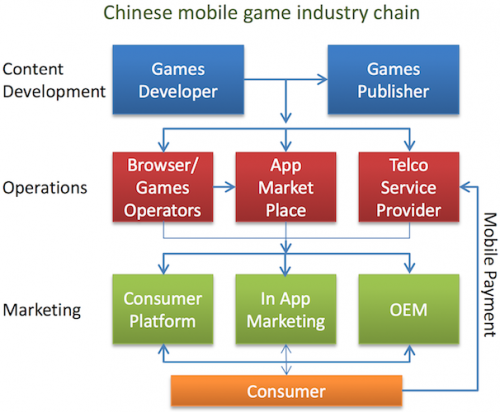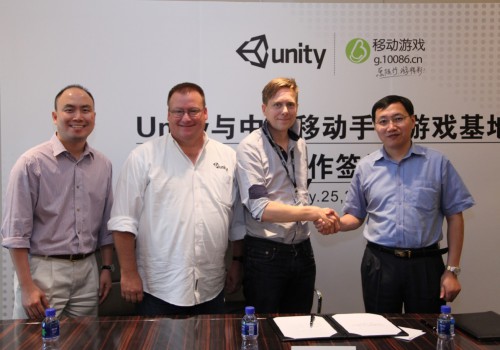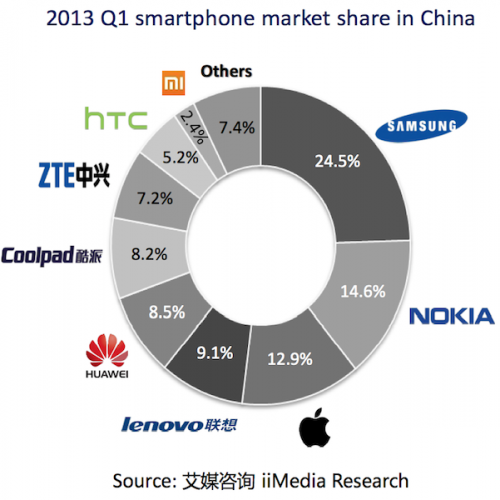Features of China's #2 Gaming Market
At the end of July, Unity technical evangelist Oleg Pridyuk at habrahabr.ru He opened a series of publications about the mobile games market in China. With Oleg’s permission, today we are publishing the second part of his story on App2Top.
Many refuse to invest in gaming startups due to the unpredictable nature of the market. You can never be sure whether the game will take off or not, whether it will work, whether it will return the investment, whether it will go into negative.
“The gaming industry is tied to hits, it’s not business, it’s luck,” one often hears from IT investors and business angels.
Indeed, the market of games, or rather, the market of mobile casual games is developing rapidly: new types of gamers appear, the needs and desires of players change, one mobile trend follows another. Despite this, experienced developers and publishers manage to understand the market, their user, and release new successful projects (not without the help of solid marketing budgets, but not without them). But this is in the West…
The Chinese market lags behind the Western one (for example, casual games are just coming into fashion, and this is in China, where young people document their every step on a social network!). But, as it seems to me, it evolves 2-3 times faster, skipping something, developing somewhere in its own way…
“The market is still growing, release time is important, iteration speed is critical, development time is critical,” explains Allen Fu, head of Unity Technologies China, “platform holders know their users, see statistics, they are interested in maximum monetization, they tell you what they need, and you are obliged to provide it to them”tomorrow”, otherwise they will turn to another.”
China is the territory of Android, operators believe in it, most gamers use Android devices. The share of iOS is 12.9% in the Chinese market, according to iiMedia Research, Android is 65%.
What’s more important: as of the end of 2012, more than 420 million devices with Internet access were registered in China. At the same time, 68% or about 286 million owners of these devices play games.
An important difference from the Western market is that the share of Google Play and Apple AppStore combined is only 16%, and almost 60% of alternative portals, such as 360.cn , 91.com and d.cn .
As a result, game content operators, game download platforms, game promotion platforms, mobile operators, device manufacturers, billing operators are located between the game developer and the user… It becomes clear that you have to play by special rules and generously share your income (about this — next time).
Due to the abundance of content and the universal practice of copying everything and everything, you should not hope for any success of your application without feathering and marketing. Even so: the release of the game in China, in principle, makes sense only if you enlist the support of a strong local player.

We ourselves in China work as follows.
At Unity Games China, we keep a constantly updated catalog of games that is available to our partners. Our internal team selects Unity games that may appeal to a Chinese user and shows them to a partner. If the partner likes the game, he puts forward a list of suggestions for adapting this project and the proposed marketing option.
The adaptation of the game, as a rule, includes changing the monetization (often radical), adding content relevant to China (necessarily panda and temple!), cutting the game to a given size (throwing out all intros, “extra” animations, audio, severely compressed textures, etc.). Sometimes you have to redo the game to run on weak Android- devices.
All this is handled by the internal team of Unity Games China, sometimes with the support of the game developer. It is important to complete the process within a few days after the operator is invited. We translate and redo a regular mobile game in 5-8 days. It is days, friends, days, otherwise someone else will take your place in the operator’s highlight.
Examples from the recent past are Ballistic and Critter Escape. Localization, porting from iOS to Android and embedding the payment system took our team 6 days for Ballistic and 8 days for Critter Escape.

We recently signed a contract with Qihoo 360 (www.360.cn , ~250 million users),
91 Mobile (www.91.com , ~200 million users) and China Mobile Games (g.10086.cn , ~ 80 million users), according to which a separate section of games on Unity — Unity Games Zone will appear in the application stores of these providers.
To be continued…
We published the first material a week ago, it can be found here.
